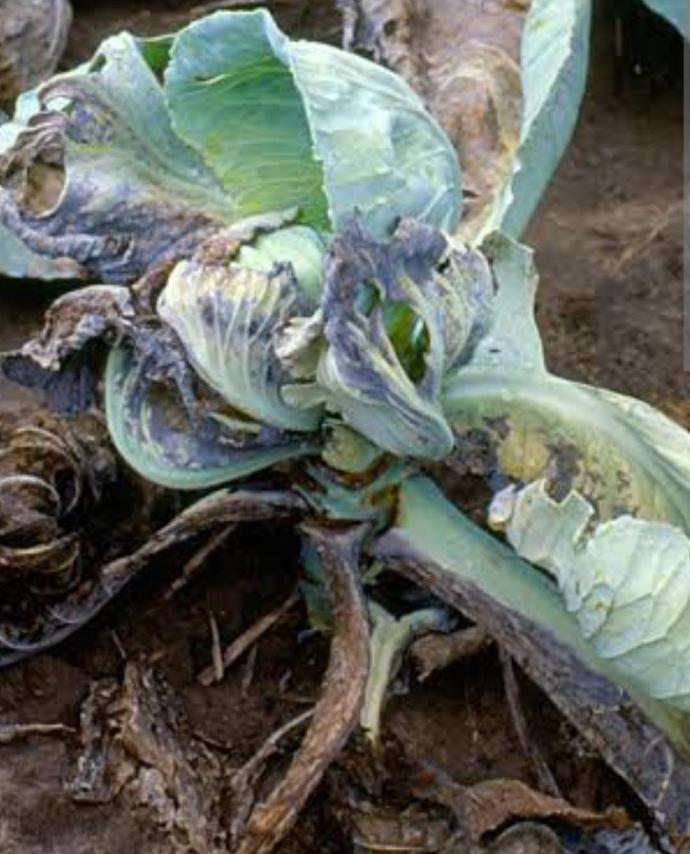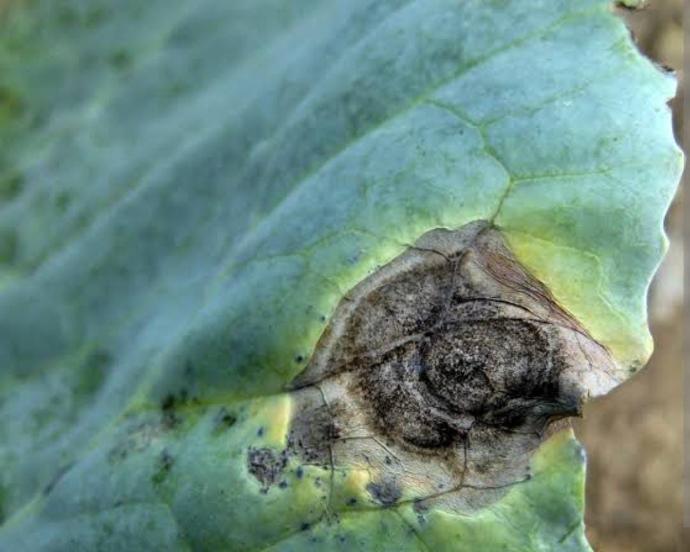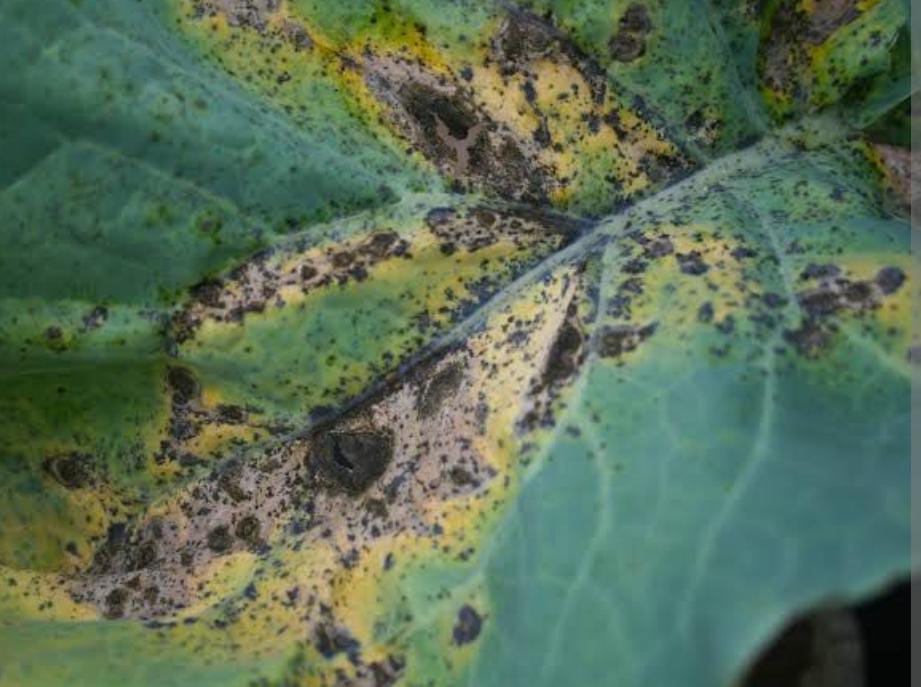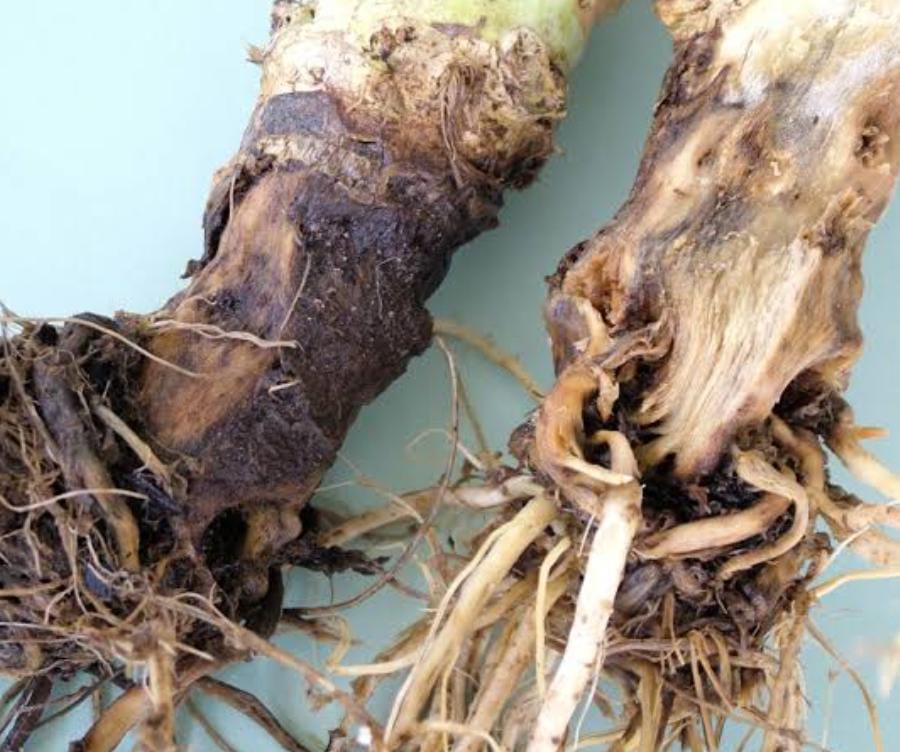Brussels Sprouts Plant
Brussels sprouts are biennials, 24-36 inches tall, and frost-tolerant. They prefer well-drained, fertile soil in full sun. Keep the soil moist. Brussels sprouts are edible but not medicinal.
Habit
Biennial
Height
45-75cm
Growth
Moderate
Soil
Loamy, well-drained
Shade
Full Sun
Moisture
Moist
Edible
Yes
Medicinal
No
Origin
Europe
Climatic Condition
Cool, temperate
Temperature (°)
15-22°C
Humidity (%)
50-70%
Potting media
Organic compost
Fertilizers
10:10:10 NPK
Watering
Regular
Plant Weight
200-500g
Flowering Time
Winter
Soil Ph level
6.0-7.5
Water Ph level
6.0-7.5
Soil EC
Low
Yield Per Plant
40-100 sprouts
NPK ratio
10:10:10
life Span
Annual
Health Benefits
Rich in fiber, vitamins
Suggested Grow Media or Potting Mix ?
40% compost, 30% peat moss, 30% perlite
Suggested Fertigation/Fertilizers
Fertilize every 2 weeks with a balanced, water-soluble fertilizer.
Common Diseases and Remedies
Alternaria Leaf Spot, Fusarium wilt.
Black Irregular shaped lesions, Reddish centers.
Yellowing of leaves, wilting of leaves.
Mulching, Using of compost.
pyraclostrobin + boscalid, captan, mancozeb, fludioxonil and fluopyram + febuconazole, Prothioconazole.
HEALTH BENEFITS
· High in antioxidants, reducing inflammation.
· Supports heart health by lowering cholesterol.
· Rich in fiber, aiding digestion.
What Is An Brussels Sprouts ?
Brussels sprouts (Brassica oleracea, cultivar Gemmifera) are cabbage-like, belonging to the Brassica family, Mustard family, and are widely cultivated in Europe and North America as edible sprouts called "sprouts". I am. Brussels sprouts are thought to have been cultivated in Belgium as early as 1200, but they were first recorded in 1587. Brussels sprouts are usually eaten cooked, and the small, young sprouts have a more delicate flavour than the older ones. This vegetable is rich in fiber, folate, manganese, and vitamins A, C, and K.
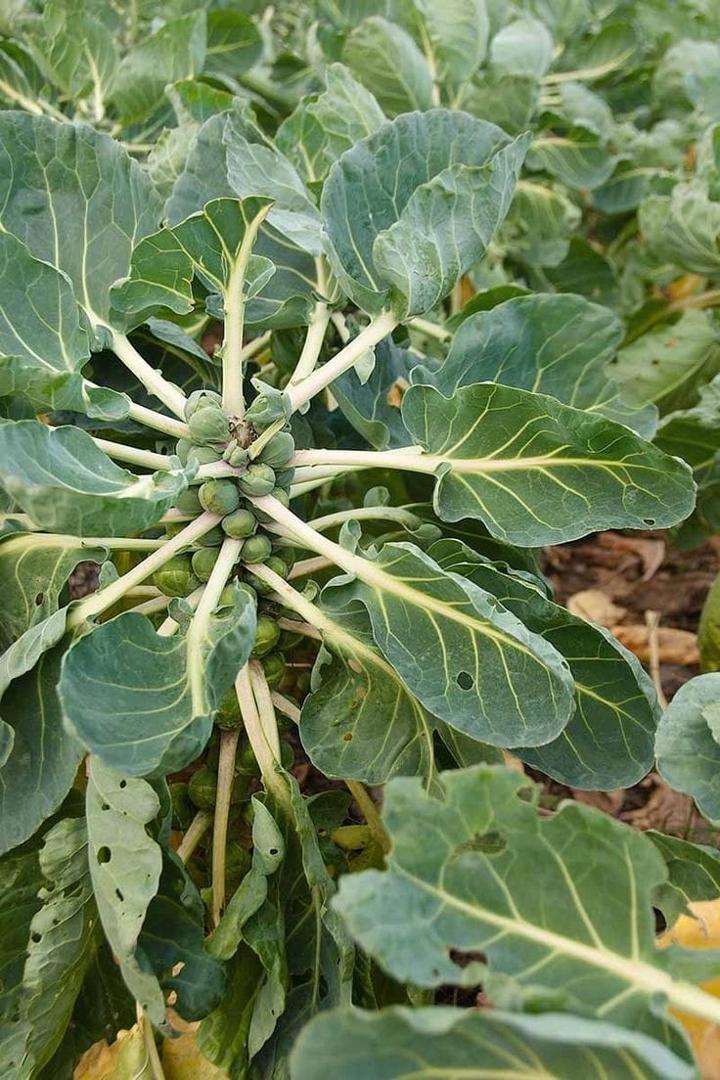
What Are The Different Types Of Brussels Sprouts ?
1. Catskill
Although a newer variety compared to other varieties, it has gained a loyal following due to its oversized 2-inch ears on compact 24-inch stems. Speaking of stems, you don't have to worry about the new shoots overpowering the stems. This plant's sturdy stem can actually function as a baseball bat. The little head is known for its rich flavour and long-lasting It will captivate you with its texture. .
2. Churchill
This hybrid is fast growing and developing, which is why it's important. If Brussels sprouts develop too slowly during the spring growing season, the weather may become unexpectedly hot and they may not produce fruit properly. Nothing makes Brussels sprouts more miserable than heat. Spring planting is generally recommended only in cool growing zones, while fall harvest planting is recommended in other regions.
3. Duggan
'Dagan' grows straight and tall, making it a great choice if you are looking for a bouquet of sprouts for the table or farmers market stall. Also, the small buds are light green and firm, so they last a long time even after harvest. This hybrid variety takes 100 days to mature and the shoots grow well in the garden, so you won't ruin your harvest if you don't get them right away.
4. Diablo
This fairly hybrid plant grows up to 60 cm in height and produces smooth, firm, medium-sized ears. Very reliable, durable and provides uniform growth. You can expect a large harvest of devilishly delicious new sprouts. When the plant is exposed to frost, the buds become incredibly nutty and sweet. The plant grows slowly and takes about 110 days. Therefore, it may be more suitable for autumn cultivation than spring, especially in warmer regions. This will avoid the early heat that can ruin spring crops that are left in the garden too long.

How to Care Brussels Sprouts ?
1. Location
Although the forerunners of modern Brussels sprouts were grown in ancient Rome, Brussels sprouts as we know them were first grown in what is now Belgium in the 13th century. This vegetable is thought to be named after the Belgian capital, where it became a popular crop in the 16th century.
2. Sunshine
Soil pH and fertility. Grow Brussels sprouts in fertile, well-drained soil that retains moisture and has a pH of 6 to 7.
3. Soil
Caring for Brussels Sprouts Plants Brussels sprouts grow best in full sun. H. At least 6 hours of direct sunlight most days. Too much shade will slow the maturation of new shoots.
4. Hydration
You want to keep the soil for your sprouts moist but not saturated. Water slowly and deeply, a total of 1 to 1 1/2 inches per week.
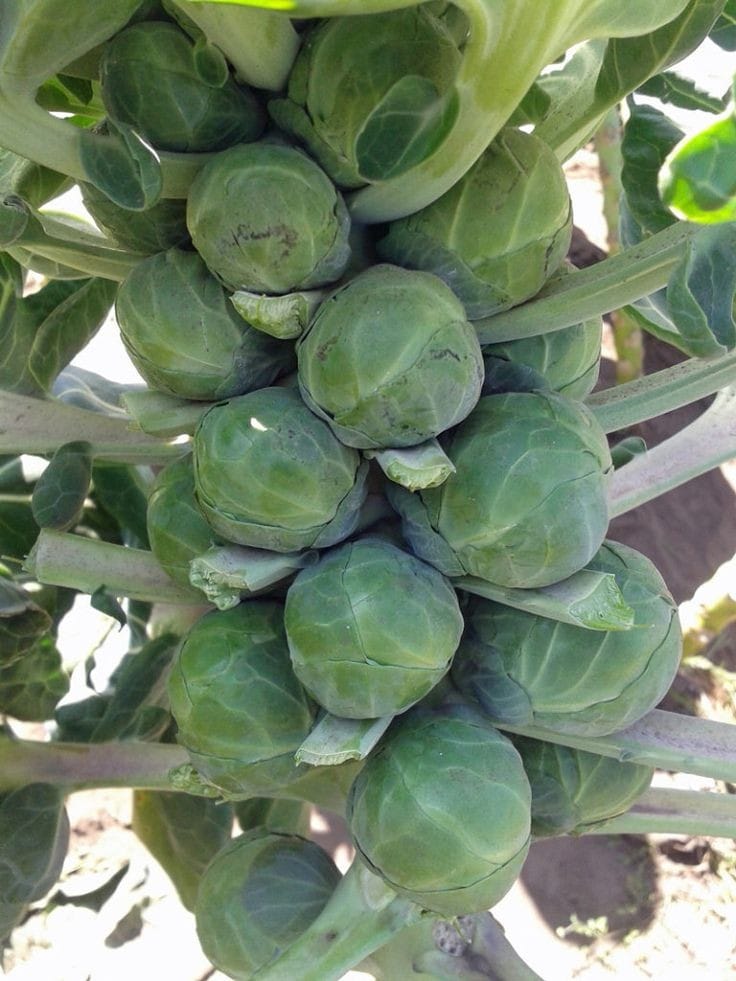
5. Nourishment
Aim for a fertilizer that is high in nitrogen, but do not overdo it. Too much nitrogen will cause the leaves to grow too much and not enough new shoots will develop along the stem. 10-20-10 or 13-13-13 will work. For organic options with lower NPK, choose 5-5-5 or 5-7-5 and apply about every two weeks.
6. Issues
Aphids, caterpillars, armyworms, pollen beetles, cabbage weevils, and slugs attack Brussels sprouts. At the seedling stage, problems with stem die-back and wiring can occur. Wild garlic, downy mildew, powdery mildew, dark and light leaf spots, ring spots, white blisters, and canker can be problems in the field.
What are the Benefits of Brussels Sprouts
Nutrient rich , Rich in antioxidants , Rich in dietary fiber , Rich in vitamin K , May help maintain healthy blood sugar levels , Soothes inflammation , Rich in vitamin C , Easy to add to your diet.
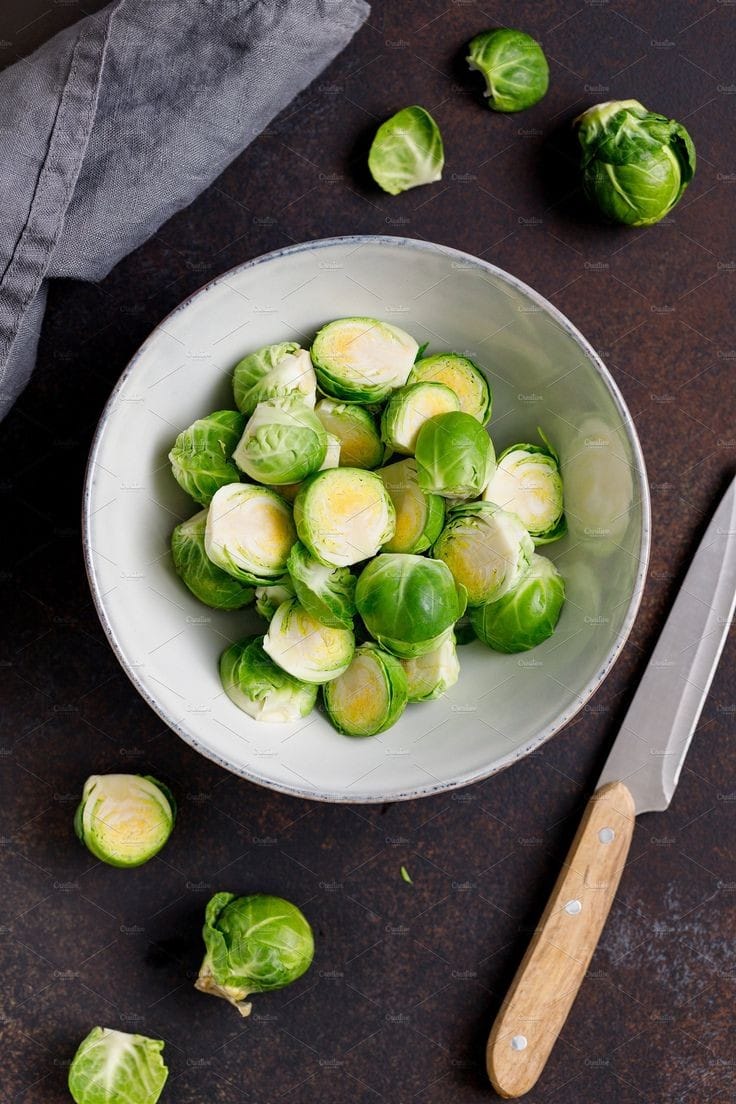
FAQs About Growing Brussels Sprouts
1. What are Brussels sprouts good for ?
Eating lots of Brussels sprouts and other cruciferous vegetables can help prevent stomach, lung, kidney, breast, bladder, and prostate cancers. . Crunchy vegetables like Brussels sprouts can also help prevent other health problems such as high blood pressure, high cholesterol, heart disease, and diabetes.
2. Is it okay to eat Brussels sprouts every day ?
Eating Brussels sprouts daily or several times a week provides your body with important vitamins and minerals. Eating too many Brussels sprouts can cause digestive problems, so it's best to consume them in moderation.
3. What effect do Brussels sprouts have on the skin ?
Brussels sprouts are rich in vitamin C, sulforaphane, and antioxidants. When combined, these important elements protect the body from viral infections and cancer. High concentrations of vitamin C also support collagen production, increasing skin elasticity and achieving a more youthful appearance.
4. Does Eating Sprouts Make Your Skin Brighter ?
Provides Glowing Healthy Skin - Sprouts are a good source of minerals and healthy vitamins that naturally help you achieve good skin health This is a method. Helps prevent oxidative damage to skin cells that leads to destruction of cellular DNA.
5. Does Eating Sprouts Make Your Skin Brighter ?
Promotes Hair Growth Consuming sprouts is also beneficial for men at risk of premature baldness, as it significantly increases blood flow to the scalp and promotes new hair growth. The shoots are rich in antioxidants, so regular consumption can also prevent premature greying of hair.
